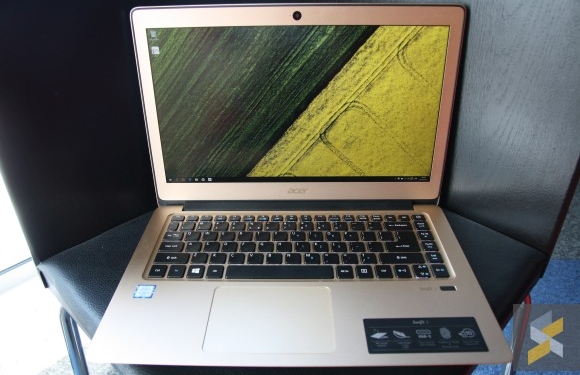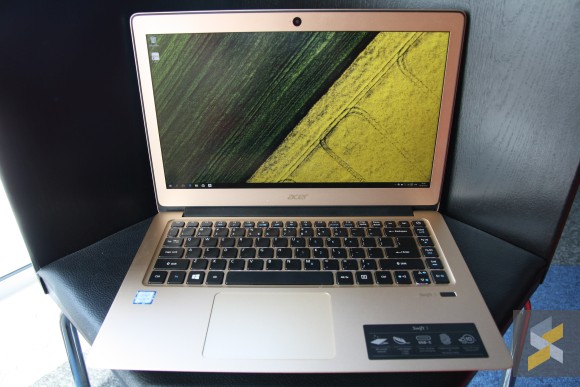I love thin, light and affordable laptops that are designed for work on the go. For me, all they need to do is handle word processing, web browsing, some rudimentary photo editing and that’s about it. Oh yeah, they should also have a long battery life, at least enough to last a working day, anyway.
The last time I checked out a laptop from Acer, it was their then brand new Aspire S 13 — a thin and light no-nonsense productivity laptop. It had a lot going for it, with a nice set of I/O ports and a nice matte display. But, there were one or two issues such as the mediocre battery life and the mostly plastic body.
Now, they’ve refreshed their laptop lineup with several new devices from Acer’s Spin and Swift series. One laptop that stood out to me as an interesting alternative to the Aspire S 13 was the Swift 3. MacBook-esque looks aside, it bears a lot of similarities with the S 13, but with a few new features and compromises. So I thought it’d be interesting to see if it’s worth the RM100 premium.
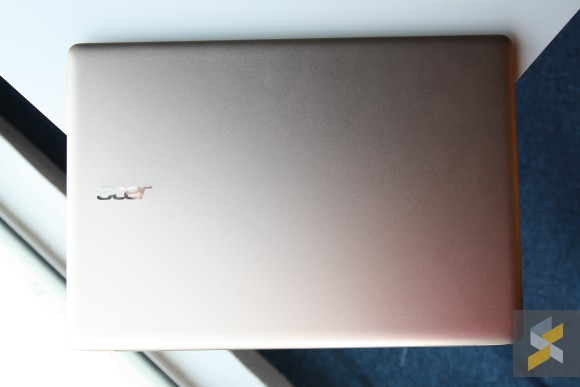
The first thing you’d notice is the build. Instead of the mostly plastic outer shell, the Swift 3 gets an all-metal aluminium body that has a subtle curve at the end so you get a thin edge. Although it doesn’t feel as premium as most high-end laptops, it does feel pretty good. It’s certainly a nicer finish than the S 13’s plastic body.
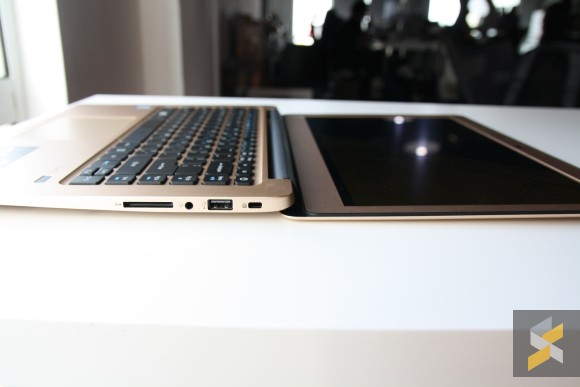
Acer’s Swift 3 also comes with a larger 14-inch Full HD IPS display with a matte finish on it to reduce glare. It will also open flat to 180 degrees, so you get more flexibility than you did with the S 13.
As far as performance goes, the Swift 3 feels very similar to the older S 13 too, so it’s smooth, and I didn’t notice any big performance differences between the two. On paper, the Swift 3 comes with a 6th-generation Intel Core i5-6200U processor, 4GB of DDR4 SDRAM, Intel HD 520 integrated graphics and 256GB of SSD storage. The specs are pretty similar, with the biggest difference being the storage that has been doubled on the Swift 3 compared to the S 13. You get about 200GB of space after Windows and some of Acer’s bloatware. You can uninstall most of it, however.
Here are some benchmarks. As a whole, the Swift 3 performs very similarly to the S 13 in benchmarks with the Swift 3 pulling ahead in the write speeds (except 4K) in CrystalDiskMark.
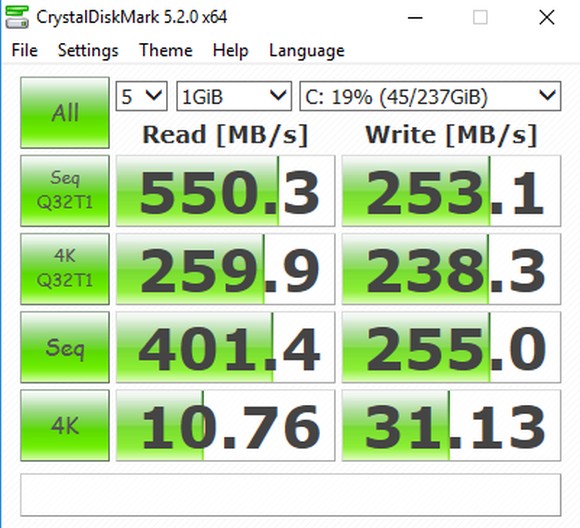
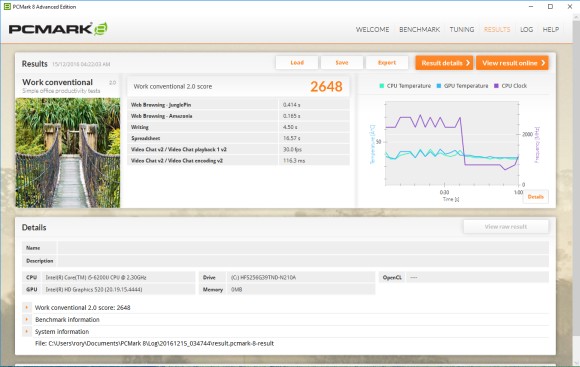
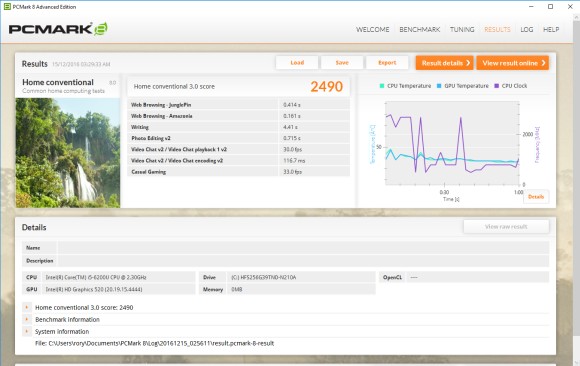
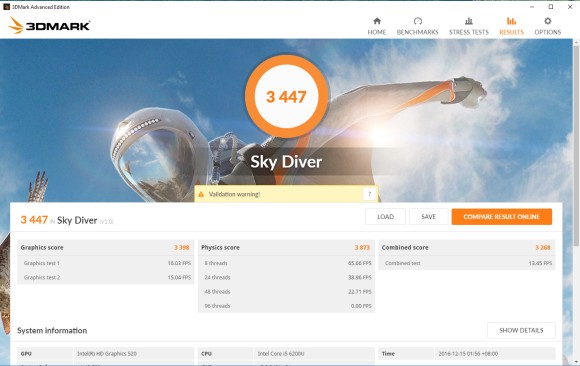
[nextpage title=”The build”]
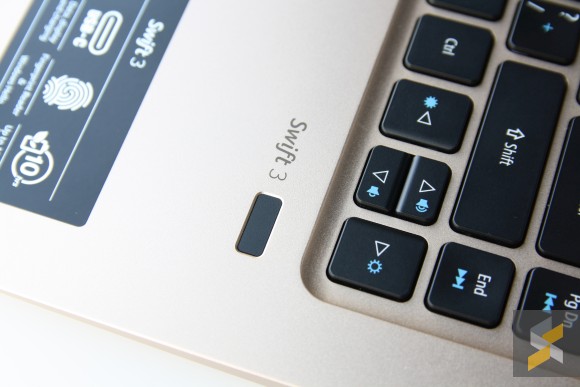
For ease of access, it’s got a fingerprint sensor built in. When it works, it unlocks your laptop in a jiffy but it is quite hit or miss sometimes, which means you’ll have to resort to entering your pin or password instead. I would have preferred to see a Windows Hello setup with an infrared camera, but this is a budget device so I can understand.
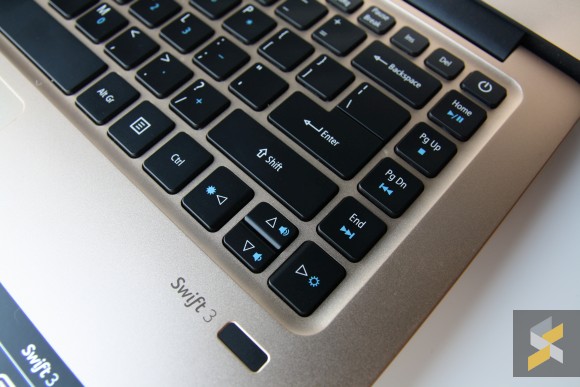
You also get a new keyboard which I think gives you a better typing experience overall. The keys are well-spaced and have nice travel. It’s still a little mushier than I’d prefer but this time the Page Up and Page Down keys are no longer right above the arrow keys so I don’t hit them by accident anymore.
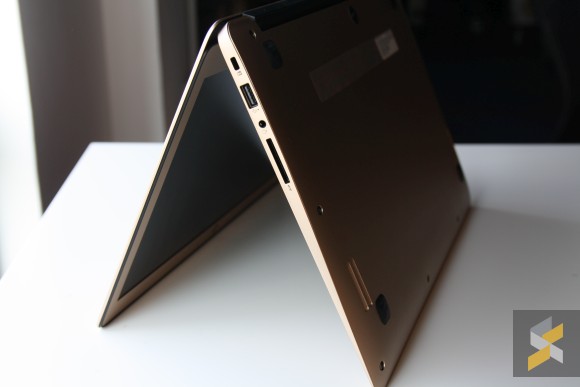
That said, it isn’t the perfect laptop. The Swift 3 is 3.6mm thicker and 200 grams heavier than the S 13, thanks to all those added features and the new metal body. Its battery life also isn’t particularly great. On the Swift 3, I managed to get about 7 hours of use on a single charge of my typical workload usage. That’s about one hour longer than I got on the S 13, which is slightly better but still not quite one typical work day.
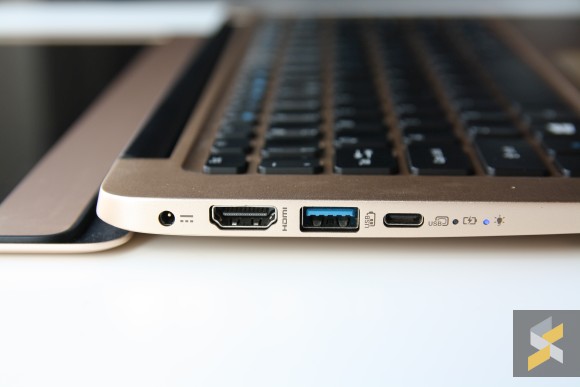
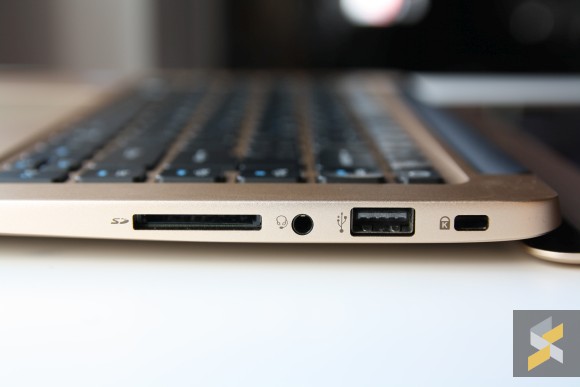
As a whole, I really don’t have many complaints with the Swift 3, especially compared to the S 13. In fact, it improves on quite a few aspects of the older laptop, which is nice, and maintains a similar price point. If you’re OK with the slightly added bulk, then I would definitely recommend the Swift 3 with as much enthusiasm (if not a little more) than I did with the S 13.

It captures a lot of the old S 13’s spirit, only in a new all-metal body plus a few bells and whistles. The way I see it, the only issue with purchasing one would be that the Swift 3 only comes in one configuration, so if you want, say 8GB of memory, you can’t buy a higher spec. Otherwise, this is a pretty solid laptop.
Operating System: Windows 10 Home 64-bit
Display: 14″ Full HD 1920×1080 IPS
Processor: 2.30GHz dual-core 6th Generation Intel Core i5-6200U
Memory: 4GB DDR4 SDRAM
Graphics: Intel HD Graphics 520
Storage: 256GB SSD Serial ATA/600
Dimensions: 341×236.6x18mm
Ports: 1 USB 2.0, 1 USB 3.0, 1 USB Type-C, HDMI, Headphone/Mic combo, SD Card reader
Weight: 1.5kg
Battery Life: About 7 hours

